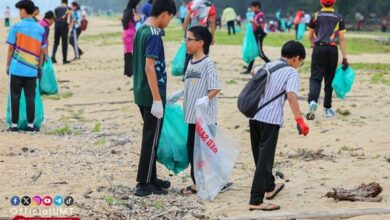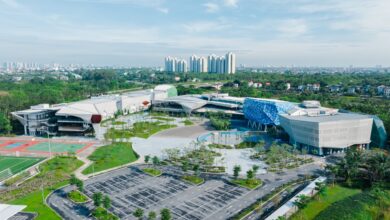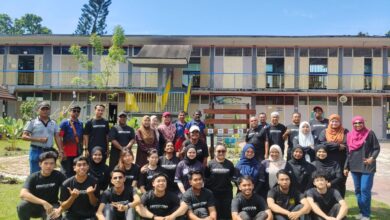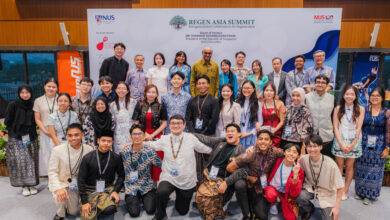NUS Southeast Asia Friendship Initiative: Experiential learning in Mainland Southeast Asia

Venturing beyond the campus walls and into Southeast Asia’s bustling city streets and remote villages, 229 students from various NUS halls, residential colleges and houses spent their summer engaging with and learning about the different communities in the region, in relation to the United Nations Sustainable Development Goals (SDGs).
The 12 overseas study trips taking place from May to July this year were part of the pilot launch of the Southeast Asia Friendship Initiative (SFI), a new special global programme developed by the Office of the Provost and NUS Global Relations Office.
In this second instalment of a two-part series on SFI, NUS students made their way to Mainland Southeast Asia and explored countries along the Mekong River.
Engaging communities and cultures in Laos and Vietnam
Experiential learning came alive when 18 students from the College of Alice and Peter Tan (CAPT) spent 12 days in Laos and Vietnam, experiencing some of the different communities and cultures in Indochina. Led by CAPT’s Fellows − Dr Joelle Lai, Ms Angie Tan and Dr Kevin McGahan − the journey kicked off in Laos, where students learned about the impact of landmines, poverty reduction, gender inequality, and socio-economic development on the locals.
One of the trip’s highlights was meeting with Madam Chanhpheng Sivila, founder of the Laos Disabled Women’s Development Center (LDWDC), a non-governmental organisation (NGO) that advocates for the rights of disabled women. After an inspiring dialogue session with Madam Sivila, the students went on-site to meet the trainees at LDWDC, and witnessed for themselves the centre’s efforts in helping Laotian women with disabilities generate an income and support themselves.
The students also visited the Gender Development Association in Vientiane, Laos, which brought to light disparities in education, healthcare and social participation for women from rural villages, as well as the prevalence of gender-based violence in rural areas.
The trip allowed Moon Ng, a Year 2 undergraduate from the Faculty of Science, to realise the value of providing alternative career pathways and the need to address misconceptions about vocational and technical occupations. Expressing the view that these professions are undervalued in Singapore society, Moon said, “I think that supporting and having greater appreciation of these vocational pathways is also something that Singapore should work on; to show those with disabilities or those who do not want to pursue traditional academic pathways, that their future holds a full spectrum of possibilities.”
The adventure then continued in Vietnam, where the students were hosted by their counterparts from the Vietnam National University (VNU) for an exciting day of sharing and learning from one another. The visits to the Vietnam Museum of Ethnology and the Hoa Lo Prison Museum were also made more meaningful as the VNU students took time to explain the complexity of Vietnam’s history and culture. The team had the chance to discuss the issues of migration and social enterprises as well as the challenges and opportunities of community-based tourism through first-hand insights from village elders.
To find out more about the SFI at CAPT, click here.
Tackling inequality with sustainability in Laos
For their SFI study trip, 21 students from Raffles Hall (RH) also chose to head to Laos to study the SDG goals of Food Security, Inequality and Urbanisation. Led by Hall Master Associate Professor Stella Tan, Resident Fellows Associate Professor Lee Hon Sing and Mr Ezra Chiam, together with two other NUS staff, the team visited fellow Singaporean, Ms Yap Weiling, who has been running her own farm in Laos for years.
The proud farm owner was generous in sharing her experiences living in Laos, even letting the students have a go at planting trees! Through the process, the students were able to learn about sustainable agricultural practices as well as the benefits and challenges of building sustainable communities in the landlocked country.
Find out more : NUS




